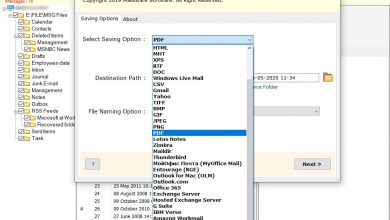Web vs. Mobile App Development | Main Differences
Which Career Is Best for You: Web Development or Mobile Development?

Do you need clarification on the distinction between a web developer and a mobile developer? Although the jobs are sometimes conflated, they represent two unique professional pathways that call for various aptitudes and talents. So let’s review the similarities and differences between these two professions to see which would fit you best.
Mobile Development
A mobile app developer’s primary responsibility is to build and maintain usable programs for usage on mobile devices. Mobile app developers are often in charge of doing research, creating, programming, and testing mobile applications before they are made public to achieve this. In addition, mobile Developers will help by assessing the app, locating any issues, and making any required upgrades after it has been launched.
Additional duties of mobile app developers include:
- Having discussions with clients or project managers to ascertain their requirements for mobile applications
- Creating a strategy and working with others to develop a mobile app that complies with the client’s requirements
- Coding the mobile application, testing it to ensure it functions on a range of devices, and removing any potential flaws
- Reporting on the development of the application and providing updates
- Overseeing the project, checking the finished product to make sure it functions as planned, and making sure the mobile app satisfies the necessary criteria
- Creating technical documentation to assist team members in comprehending how the application was developed and enhancing upcoming maintenance
- Evaluating both new and established mobile apps, identifying issues, making suggestions, and putting them into practice
- Interacting with people to better understand their requirements and app usage experiences
- Updating already-existing mobile applications
- Keeping up with best practices and developments in mobile app development
Mobile app developers can work in almost any sector, including healthcare, retail, tourism, finance, and education. However, they are frequently employed by businesses specializing in developing mobile apps. Additionally, mobile app developers have the choice to work for themselves as independent contractors.
Skills Needed for Mobile Development
For success, mobile developers require both technical and non-technical abilities. The following are some of the most typical qualifications needed for careers in mobile development:
- knowledge of user interface (UI), user experience (UX), and app design concepts
- understanding of application programming interfaces and back-end computing (APIs)
- Being able to create, test, and debug programs in various languages, including Java, JavaScript, Swift, Kotlin, C++, C#, and Python.
- The capacity to research, build, release, and manage mobile apps that satisfy customers’ and users’ demands.
- the capacity to evaluate current mobile apps, spot potential improvements, make adjustments and put enhancements into practice
- Strong time management, problem-solving, and critical thinking abilities, as well as creativity and attention to detail
- the capacity for straightforward communication, teamwork, and flexibility
- knowledge of current mobile app developments and how to use them in a professional setting
The talents you’ll need to succeed may differ depending on your position; the ones above are only a sample of the fundamental abilities required to perform in the mobile development industry.
Web Development
The fundamental framework of a website is created and maintained through the use of code throughout web development. A web developer’s job is to take the ideas and concepts a web designer develops and turns them into a usable, responsive, and functioning website. To find and fix any flaws, web developers must also do quality assurance testing on their code.
The three subfields of web development are front end, back end, and full stack. The client side of the website emphasizes front-end web development. Everything that takes place in the background to support the front end, such as servers, databases, and apps, is dealt with in back-end development. Finally, front-end and back-end development are combined into full-stack development, using components from both.
Depending on their area of expertise, web developers have a variety of work roles. However, the following are some of the more typical ones:
- Determining the website’s goals and design with the help of the stakeholders
- Building and managing servers, databases, APIs, and the general infrastructure of websites
- Creating the front end of a website
- Coding the website’s front and back ends and fixing any bugs that may appear
- Using the concepts of user interface (UI) and user experience (UX)
- Designing, maintaining, and updating navigation menus and user interfaces as needed
- Including multimedia material on websites, such as images, music, video, etc.
- Making sure that websites can be seen across several platforms and gadgets, such as desktops, laptops, tablets, and smartphones
- Putting policies into practice to safeguard data
- Testing websites for speed, usability, and other factors, then making modifications to improve performance
- Writing technical documentation for the site.
- Maintaining the website and adding improvements as needed
This is a sample list of some of the most typical assignments; it is not an exhaustive list. Based on your function and the requirements of the stakeholder, project, and employer, you can be requested to take on extra tasks when working as a web developer.
Skills Needed for Web Development
Although there are differences in web development skills among the many specialties, each aspiring web developer should possess or learn the following abilities:
- A talent for writing high-quality code in languages like HTML, CSS, and JavaScript
- Being able to test code, detect bugs, solve issues, and keep track of code changes
- Possess firsthand knowledge of web development technologies such libraries, frameworks, content management systems (CMS), bug-tracking tools, and code versioning software.
- High computer literacy, analytical thinking, attention to detail, and problem-solving skills are required. In addition, a basic understanding of user experience (UX) and SEO (search engine optimization) ideas is also required.
- A grasp of how servers, operating systems, databases, hosting environments, and APIs (application programming interfaces) work.
While working as a Web Developer, other, less technical abilities like excellent communication and the capacity to interact with people will also be helpful. A person in this career should also be able to prioritize activities, tell what is essential and what is not, and be organized when working on many projects.
Job Prospects for Mobile and Web Development
It’s the ideal time to start a new career in web development or mobile app development because both fields are seeing tremendous growth and need new employees to fill open positions. Compared to the 8% average rise for all occupations over the same period, the United States Bureau of Labor Statistics predicts that 17,900 new web development roles will be created between now and 2030, reflecting a 13% employment growth rate. In addition, because mobile app development is a subset of software development, which is expected to create 189,200 new jobs annually at a rate of 22%, the employment outlook is even more promising.
Depending on location, experience, and specialty, salaries for people working in web and mobile development might vary, but overall, they are often rewarding career options. In the US, front-end, back-end, and full-stack developers earn between $100,000 and $115,000 per year. However, the national average salary for mobile app developers is over $120,000 annually, a marginal increase over the industry average.

What Distinctions Exist Between Web and Mobile Development?
It’s a prevalent misconception that You can swap out the web and mobile app developers’ tasks. Even though they are both IT professionals that can create and carry out projects to meet the needs of their clients, their jobs are distinct. Where and how their work is made accessible to the public makes the most difference.
Web developers work on creating websites, unlike mobile app developers, who only make software for mobile devices. Before being used, a mobile app has to be downloaded from the app store and installed on a phone or tablet. Websites may be seen on any Internet-connected device, such as desktop and laptop computers, mobile phones, tablets, and other portable devices.
Which Career Is Best for You: Web Development or Mobile Development?
Despite some similarities, web and mobile app development are two distinct career paths that suit people with different interests and aptitudes. For example, mobile app development is an excellent career choice for people who prefer working on diverse daily chores because it calls for a wider variety of talents than web programming. On the other hand, web developers’ responsibilities are significantly more constrained even though their job obligations can also vary, particularly if they focus on the front or back end rather than taking on a multifaceted full-stack development role.
Asking yourself these three questions can help you choose which job path is ideal for you.
- First, do I want to work in an area that is interesting and expanding quickly?
- Would I enjoy learning about back-end computers, various programming languages, user experience (UX), user interface (UI), application programming interfaces (APIs), and app design?
- Am I interested in developing dependable, user-friendly mobile applications?
You would probably be a good fit for the mobile app development field if you said “yes” to any of the following. If you chose “no,” consider whether web development might be a better option by responding to the following:
- Do I like doing technical and artistic work?
- Do I want to enhance how visitors interact with a website?
- Do I want to design appealing, useful, and dynamic websites?
If you said “yes” to any of these inquiries, you should consider a career in web development.
Steps for Beginning a Career in Web or Mobile Development
Enrolling in a Bootcamp is the greatest way to launch a career in web or mobile app development. These skill-focused programs run on an intensive, compressed schedule to get you career-ready in only a few months and are frequently seen as a viable alternative to university study. That’s excellent news, given the abundance of openings in both sectors; you may begin recouping your financial investment right after graduation.
The final verdict:
The subject of creating web and mobile applications is complex. When creating apps, whether native or cross-platform, the user experience must always come first. Your app’s functionality must match its primary use case, and the interactive components must be easy to use.
The creation of apps can go a plethora of different paths. Your best option will depend on your spending limit, objectives, schedule, technical proficiency level, and the app’s complexity.
Want to learn more? Request a free consultation to talk with one of our app development experts.





